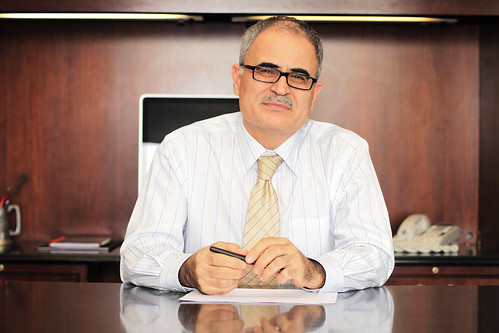
A center will research the effect AIDS has on brain diseases.
The National Institute of Mental Health granted Temple $8.34 million for the creation of a Comprehensive NeuroAIDS Core Center. The project will create a center to research AIDS-associated neurological diseases.
Kamel Khalili, the chair of neuroscience and principal investigator on the project, said more than 40 percent of AIDS patients come down with neurological diseases. One of the major problems is that most drugs used to treat AIDS patients do not penetrate the brain efficiently, so they can’t control levels of the virus in the brain, Khalili said.
The Comprehensive NeuroAIDS Core Center will be one of only eight of its kind in the country and one of just three centers on the East Coast. It will be the only center in Pennsylvania.
Khalili said that Temple’s program is also unique.
The program invites other scientists at Temple, Drexel University, University of Pennsylvania and Jefferson University to collaborate with a group of scientists at Temple in researching AIDS and neurological disease, Khalili said.
The goal of the center is to provide a means of cross communication between clinicians and basic scientists in the medical school who are actually working the same area in medicine, one from the basic science aspect and one from the clinical aspect.
“Once you feel that there is a need for that, you have to put the pieces in place,” Khalili said.
Preparation for the initiative started by gathering a team of clinicians and scientists to work on the project. The first project proposal was submitted in 2010.
Temple University Hospital’s population consists of between 800 and 1,000 AIDS patients, which makes it a suitable location for the center.
While treatment is the top priority, utilizing information from these clinics could help develop better diagnostics and therapeutics in AIDS associated neurological diseases, Khalili said.
The grant from the National Institute of Mental Health also offers seed money for innovative research in neuroAIDS to give medical students an opportunity to explore neuroAIDS and also to participate in mentorships.
The idea is not just to support the research of established scientists, but also to bring up and educate some students and some residents in the field of neuroAIDS and support their studies and research in this particular area, Khalili said.
One of the immediate goals of the core center is to establish an infrastructure for the program because this is the first time Temple has had such an initiative.
“It’s like a developmental stage,” Khalili said.
Another part of the new initiative is working on an international component in India.
There is a population of AIDS patients in India, as the virus and disease are exhibiting slightly different features than in America, Khalili said. The goal of the international research is to learn more about pathobiology of the disease.
Lily Fronden can be reached at lily.fronden@temple.edu.



Be the first to comment